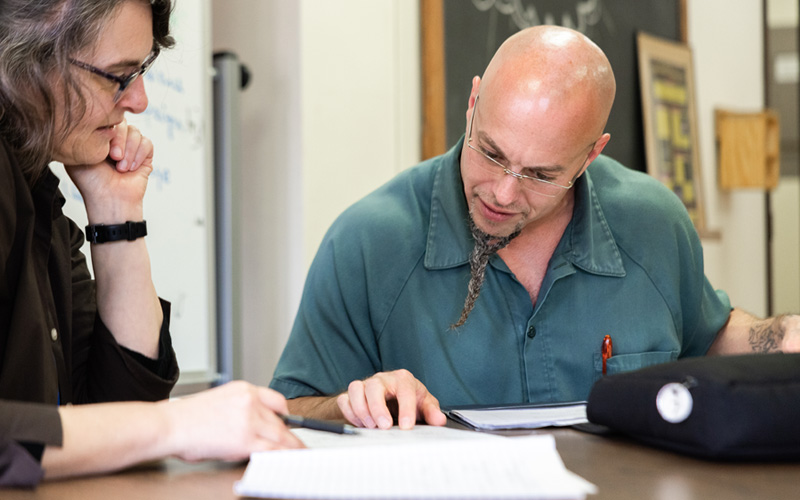Passionate poet, children and young adult non-fiction writer and proud 2013 RACSTL Community Arts Training (CAT) alum, Jennifer Fandel, uses a creative approach to make learning playful and accessible within her community, wherever that may be. Fandel roamed up and down the Mississippi River from Louisiana to Minnesota and Illinois to Missouri before ending up in her home state of Wisconsin, where she spends her time teaching poetry and writing in correctional institutions.
When recalling her time spent in the CAT program, Fandel noted how vital it was for their practice to join a community of people who had similar passions. “I was so happy to have gotten accepted into the CAT program,” Fandel said. “It was nice to be with people doing all kinds of things within the community related to the arts and who wanted to see social change.”
For more than 25 years, the CAT program has trained people to use the arts as a tool for positive social change. The program provides professional-level, comprehensive training to prepare artists of all disciplines and community partners to collaborate in creating and sustaining significant arts programs. These programs are mainly in under-resourced community settings, such as neighborhood organizations, social service agencies, development initiatives and education programs.
Fandel praised the CAT program for giving them the tools they need to continue their work. “The most valuable tools [I learned] from CAT were coming in and listening, being an observer in new spaces and being aware of privilege,” Fandel said. “Outsider perspective isn’t valuable if you aren’t willing to change or encounter.”
Fandel wanted to get more involved in using writing for healing, and teaching in correctional institutions was always something that piqued her interest. Luckily, one of their classmates at CAT, Christopher Limber, happened to be the artistic director of adult programming at Prison Performing Arts at the time.

Through this connection and with a passion for helping people work through their issues with writing, Fandel became the poetry writing instructor for Prison Performing Arts at the Women’s Eastern Reception, Diagnostic, and Correctional Center (WERDCC) in Vandalia, Missouri, from 2016 through 2017. When she moved back to Wisconsin in 2017, she took her poetry and writing practice with her. Fandel volunteered for the Wisconsin Prison Humanities Project, an organization that leads humanities classes at the Oakhill Correctional Institution from 2017 to 2022.
In 2019, she began working as the tutoring coordinator for the pilot project at Oakhill Prison. The program is affiliated with the Odyssey Project, which is a jumpstart college program serving low-income adults, giving them a chance to try college. Since 2022, she has worked full-time at Odyssey Beyond Bars as the associate director. Over the years, the program has expanded throughout Wisconsin. She currently teaches English composition (a credit course) and poetry (a non-credit course) at Columbia Correctional Institution, as well as handling the tutoring program and administration.
Fandel noted the impact of students “showing up and opening up” through the work and how it builds up confidence. She recalled a time with a particularly resistant student, who she said was never “warm and fuzzy” but ended up becoming deeply engaged in the work. “She pushed herself as a writer and went on to perform the poetry,” Fandel said. “She ended up sending her work to a magazine focused on work by writers at correctional institutions.”
When giving thought to the importance of the work, Fandel mentions the power of a person’s voice and how important it is to understanding feelings. “Reflecting on what you really think and feel,” Fandel said. “Knowing your own mind and understanding yourself helps with understanding yourself within the world.” Fandel also references a Joan Didion quote she holds close, “I don’t know what I think until I write it down.”
Photo credits: Odyssey Beyond Bars by Chris Bacarella


Follow Us On Social Media